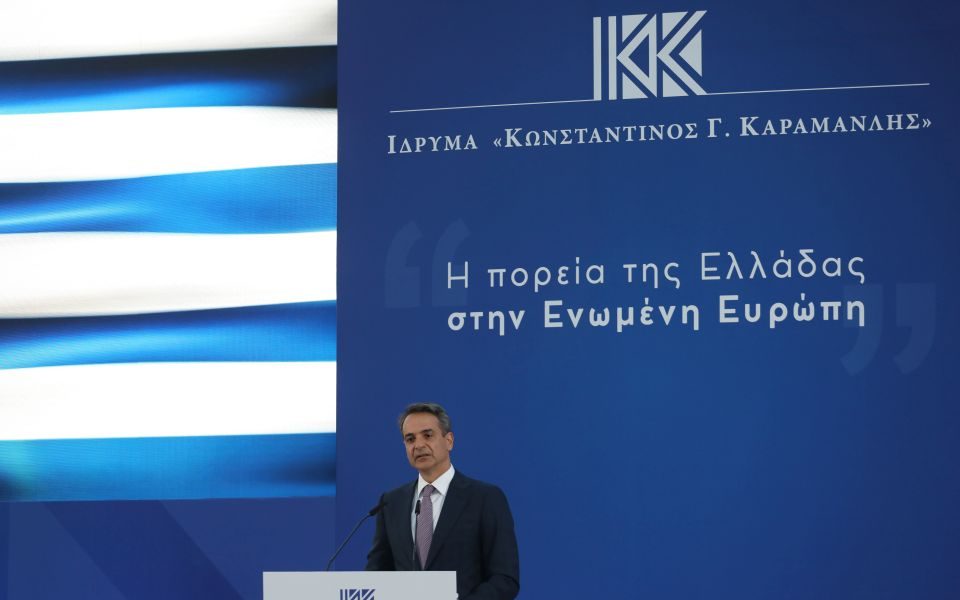Mitsotakis: Karamanlis’ dream of EU membership changed Greece radically

New Democracy’s founder Konstantinos Karamanlis was a stateman who had the “persistent insight” to pursue Greece’s membership of the European family since 1961, the prime minister said on Wednesday.
Kyriakos Mitsotakis was speaking at an event hosted by the Konstantinos Karamanlis Foundation on “Greece’s Path to a Unified Europe.”
Greece’s application for EU membership in June 1975 was met with doubt by other countries but found a staunch ally in French president Valéry Giscard d’Estaing. However, the persistence of the New Democracy founder, who served as prime minister and later president, has been vindicated in the last 40 years, Mitsotakis said.
EU membership came in January 1981, followed by what he called two landmark events, Greece’s membership in the eurozone and the EU accession of Cyprus.
“Greece’s participation in European events was a central political choice for the entire center-right, with Karamanlis leading,” the premier said.
It was a choice that was tested strongly by challenges through time, including doubts abroad for Greece’s membership early on. “The deepening of democracy and the country’s progress are now aligned with Europe,” he added. The country’s membership opened the way as well to membership of southern European countries, including Spain and Portugal.
The premier said that the party Karamanlis founded “was and will be the party of Greece in Europe,” and his own government worked to boost Athens’ institutional presence in Brussels. Despite the challenges, the choice Karamanlis made “is now established” and the late statesman would have been proud to see his party’s consistent support of European membership. In addition, Greece can now can protect its own borders, and in doing so is also protecting the EU borders as well, he underlined.
“Greece in 2021 is radically different from Greece in 1981, because there has been no public field that has not benefited from EU influence, as Konstantinos Karamanlis had so wisely foreseen – from the funding of infrastructure and the restructuring of farm production to the expansion of rights, the state of law, social cohesion and cultural creativity,” Mitsotakis said.
“The revocation of protectionism within the common market may in the beginning have highlighted our economy’s infrastructural weaknesses, but in the medium term it upgraded its entire functioning.” [AMNA]





